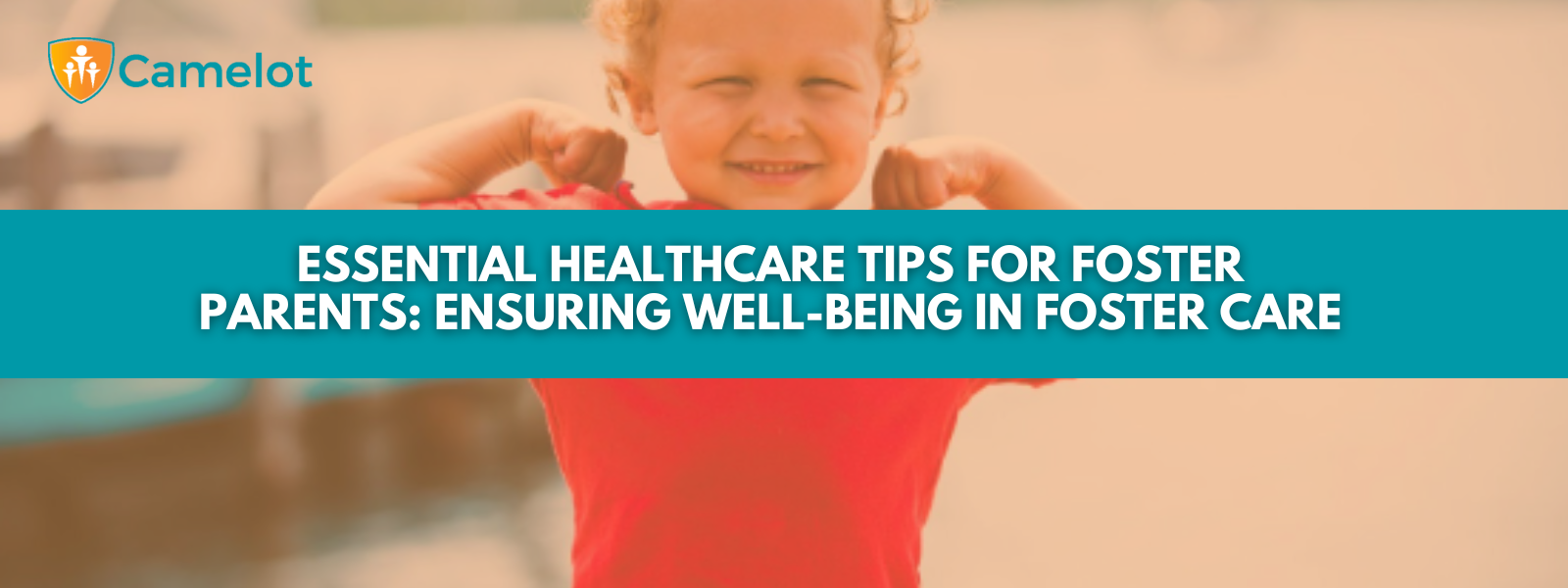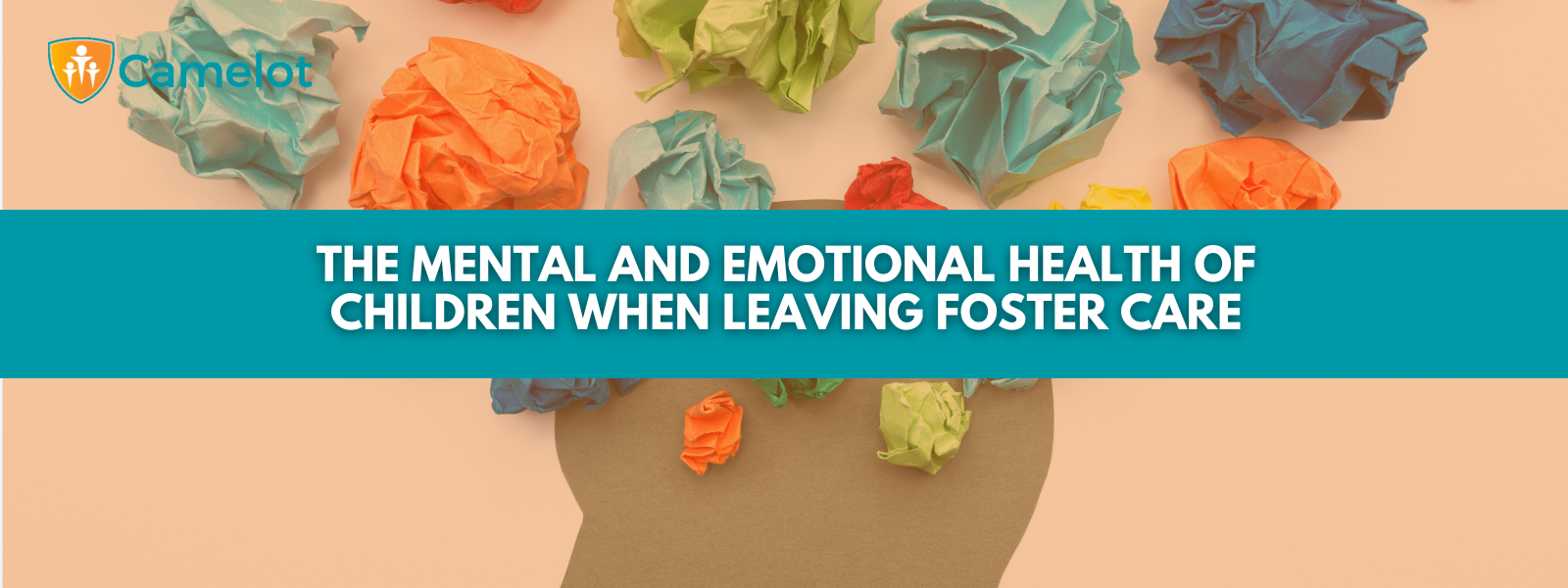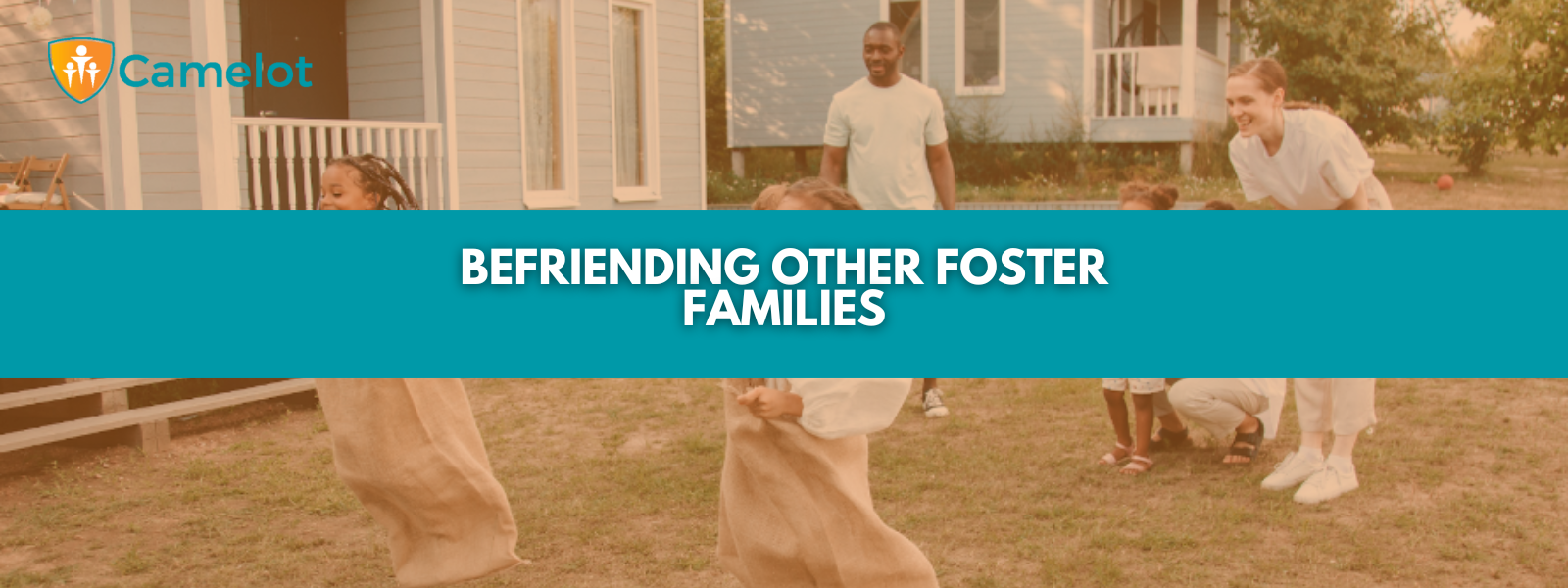Navigating Pediatric Healthcare in Foster Care: Key Considerations
Navigating Pediatric Healthcare in Foster Care: Key Considerations

Becoming a temporary family for a child whose birth parents are not capable of offering the necessary level of care and support due to personal hardships is a decision that comes with a lot of responsibility. When you accept a placement, you confirm your readiness to take care of your foster child’s pediatric healthcare needs.
You may rightly feel worried about how to properly take care of your foster child’s healthcare needs. If you choose to work with an agency that offers foster care services, such as Camelot Care Center, you will get assistance with navigating the pediatric healthcare journey, including
outpatient therapy services,
medication management, and more.
If you are new to foster parenting and choose to embark on this journey on your own, we have the following tips to share with you regarding pediatric healthcare in foster care.
What Is Pediatric Healthcare?
First, if you are new to parenting, you may not know the variety of pediatric healthcare departments available to children in Tennessee. Let’s have a brief overview of pediatric healthcare departments.
Pediatric healthcare is available to all individuals who are younger than 21. The age categories are further divided into early adolescence from 11 to 14, middle adolescence from 15 to 18, and late adolescence from 18 to 21.
Pediatric Intensive Care Unit (PICU)
The Pediatric Intensive Care Unit (PICU) is dedicated to the treatment of the most critically ill pediatric patients. Typically housed within children's hospitals or as a unit within general hospitals, the PICU caters to a range of medical needs, including Level II trauma, medical and surgical intensive care, respiratory diseases, neurological conditions, and post-operative care following open-heart surgeries.
The PICU is staffed with a multidisciplinary team of registered nurses, respiratory therapists, clinical pharmacists, and intensivists (physicians), all extensively trained in pediatric critical care. Additionally, support staff such as social workers, dieticians, and therapists, all possess specialized pediatric training, ensuring comprehensive care for every child under their watch.
Beyond catering to the critically ill, the PICU also accommodates children who require specialized monitoring and care.
Pediatric Urgent Care Unit
Situations that require urgent care visits for children include suspected flu symptoms, ear infections, strep throat, conjunctivitis (pink eye), and recurrent episodes of vomiting or diarrhea without signs of dehydration or severe abdominal pain.
Pediatric Acute Care
Pediatric acute care units offer specialized medical and surgical services tailored to the needs of young patients who require comprehensive care but do not necessitate the constant monitoring of an intensive care unit. Staffed by general pediatricians, specialists, nurses, and support personnel trained in pediatric care, these units provide around-the-clock attention to ensure the well-being of their patients.
Acute care includes such healthcare services as pain management, addressing feeding or swallowing difficulties, and assisting with neurological problems or developmental delays.
Pediatric Ambulatory Care
Pediatric ambulatory care allows children to receive necessary medical attention without hospitalization. Conditions commonly addressed in pediatric ambulatory care span a broad spectrum, ranging from chronic conditions like ADHD, allergies, asthma, and autism to acute diseases such as ear infections, sore throats, urinary tract infections, and various viral, bacterial, and parasitic infections.
Additionally, ambulatory care addresses developmental concerns like learning disabilities, neurological conditions such as seizures, and dermatological issues like eczema and other skin disorders.
Pediatric Dental Care
Pediatric dentists and their assistants specialize in providing comprehensive oral care tailored to the unique needs of young patients. By emphasizing preventive measures, pediatric dentistry aims to address issues early on to prevent long-term dental problems. Services provided include oral health examinations, cleanings, fluoride treatments, and nutrition guidance. Additionally, pediatric dentists are trained to handle dental injuries, including the re-implantation of knocked-out teeth.
Healthcare Training for Foster Parents
All foster parents must complete regular CPR, Medication 10 Management, and First Aid training. Additionally, if you are interested in becoming a medically fragile provider, you would need to undergo specific, intensive training on medical treatment. Here are some examples of medical conditions that require medically fragile foster care:
- Premature birth or related complications
- Burns
- HIV
- Drug dependency
- Fetal Alcohol Syndrome
- Asthma/respiratory issues
In either foster care scenario, there are several key considerations to keep in mind when opening the doors to your foster child:
Healthcare-Related Responsibilities of Foster Parents
In general, the responsibilities of foster parents include tending to emergency medical needs and notifying the Family or Juvenile Services Worker (FSW/JSW) promptly in case of any illness or accident requiring professional medical attention.
Additionally, foster parents are required to provide routine transportation for medical appointments, ensuring the child receives timely and consistent healthcare. They must also ensure that the child's medical and dental needs are consistently addressed, advocating for necessary treatments and appointments to promote the child's overall well-being.
Overview of Limitations in Making Healthcare Choices in Foster Care
If your foster child has prescribed medications, you would be tasked with filling out the CS-0630 Foster Home Medication Record form to ensure the proper management of prescribed medications, whether short-term or long-term.
Children receiving psychotropic medications for mental health or behavioral issues require regular monitoring by the prescribing provider. Remember that consent for such medications can only be provided by the biological parent/guardian or the Regional Health Nurse.
Foster parents or agency caseworkers cannot provide consent for psychotropic medications. Also, major decisions, including surgeries, counseling, or behavioral health services, necessitate thorough discussion within the Child and Family Team (CFT), with involvement from the DCS Health Unit Nurse to ensure comprehensive consideration of your foster child's medical needs.
Pediatric Healthcare Considerations When Welcoming Your Foster Child
When welcoming your foster child into your home, you should prioritize their pediatric healthcare needs. Upon placement, ensure you receive and thoroughly review the intake form and contract provided by the caseworker.
If your foster child requires medication, count and verify all medications before the caseworker leaves. Additionally, promptly schedule or offer to assist in setting up medical, dental, and vision appointments to address any immediate healthcare needs.
Your foster child will have the following
form to help you with assessing their healthcare needs. Let’s take a closer look at vaccinations.
What If Vaccination Records for Your Foster Child Are Missing?
Sometimes, it might happen that your foster child’s vaccination records are missing from the form. In that case, you may need to do some research to best address your foster child’s pediatric healthcare needs.
Usually, vaccination records can be obtained from doctors and health clinics, your foster child’s school, or
Tennessee Immunization Records. If you still can’t obtain any records, re-immunization might be the best option. Consult with your foster child’s healthcare provider for expert advice. The immunization schedules for different age groups are available
here.
Pediatric Healthcare Considerations When Taking Your Foster Child to Appointments
When taking your foster child to healthcare appointments, except for the EPSDT screening and psychiatric medication appointments, you should adhere to the following guidelines.
First, ensure you bring along the CS-0689 Health Services Confirmation and Follow-Up Notification form. Once the form is filled out, promptly forward it to your foster child's Family Service Worker (FSW) for documentation and follow-up. By following these procedures diligently, you contribute to maintaining comprehensive records and ensuring continuity of care for your foster child within the foster care system.
Additionally, when taking your foster child to appointments, remember to always bring their TennCare card. Whether it's a visit to the doctor, dentist, emergency room, hospital, or any other healthcare provider, the TennCare card is essential. Providers need the information on the card to bill TennCare for the services.
Foster Parents as Mentors to Birth Parents in Terms of Healthcare
As a foster parent, you would play a significant role not only in caring for children placed in your home but also in mentoring their birth parents with the ultimate goal of facilitating potential reunification.
One way you can mentor your child’s birth parents is by giving them an opportunity to accompany their child to healthcare appointments. This way, you can help build trust and understanding, as well as model appropriate behavior and engagement with healthcare providers.
How Camelot Care Center Can Help Navigate Pediatric Healthcare in Foster Care
Camelot Care Center offers comprehensive support to help foster parents navigate pediatric healthcare within the foster care system. Through our home-based services in Tennessee, we provide a range of specialized programs tailored to meet the unique needs of children and families.
Our clinical employees are trained in trauma-focused cognitive behavioral therapy (TF-CBT) and motivational interviewing (MI), ensuring a holistic approach to care.
Additionally, our outpatient therapy services assist individuals, couples, and families in managing daily life challenges.
Through Tennessee Health Link, we empower clients with resource linkage and support for a healthier lifestyle. Furthermore, our substance use program utilizes motivational interviewing techniques to help adolescents and young adults examine their choices and make positive changes for the future.
Camelot Care Center is dedicated to providing high-quality, compassionate care to foster children and their families, helping them navigate the complexities of pediatric healthcare with confidence and support.
Contact us today.





Camelot Care Centers






